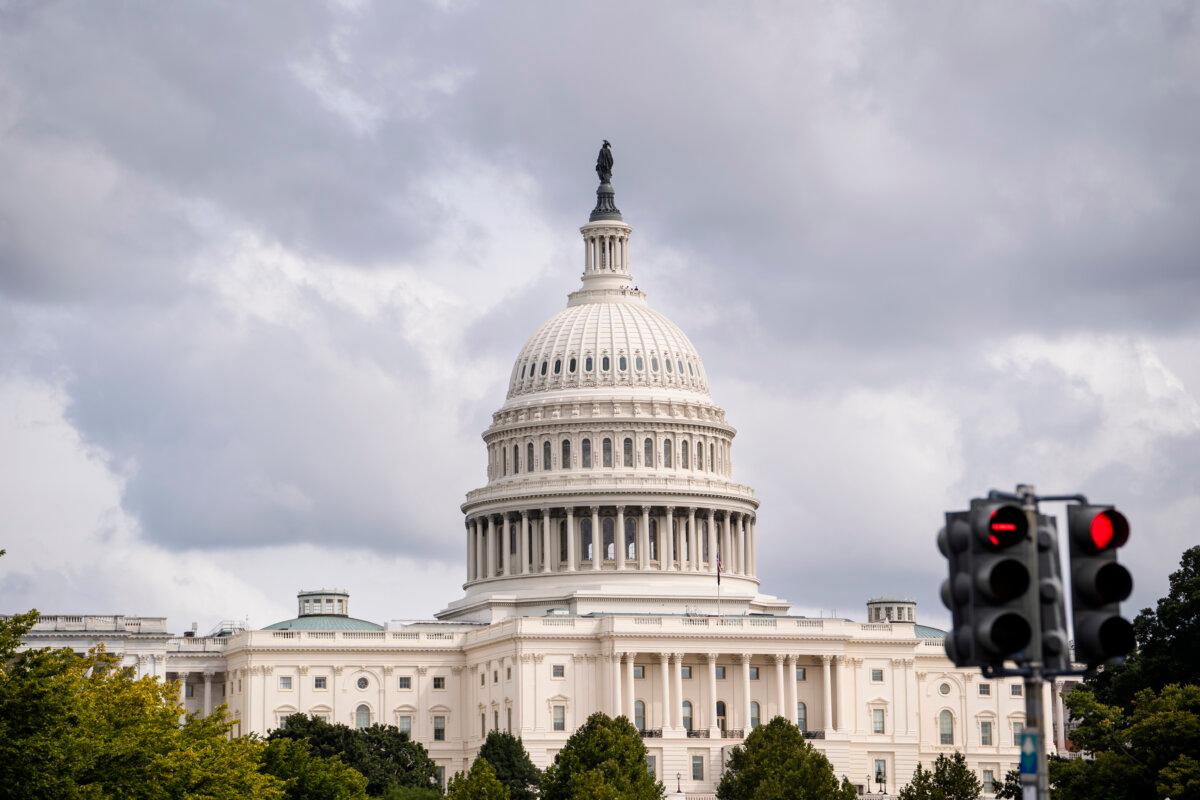House Speaker Mike Johnson (R-La.) introduced a short-term measure yesterday to fund the government through Dec. 20.
The proposed “clean” continuing resolution, which means a stopgap measure without any partisan or controversial bill riders attached, would eliminate the Safeguarding American Voter Eligibility (SAVE) Act, which aimed to mandate proof of citizenship for voter registration. It also includes additional funding for the Secret Service.

The U.S. Capitol building on Sept. 16, 2024. Madalina Vasiliu/The Epoch Times
The bill was presented eight days before the Sept. 30 deadline to avoid a government shutdown due to the Senate’s inability to pass any of the year’s 12 appropriations bills.
In a letter to colleagues, Johnson noted that a continuing resolution is the only viable option to prevent a government shutdown given the Senate’s lack of progress on the appropriations bills.
Last week, the House rejected a bill to extend government funding into March, which included the SAVE Act.
Fourteen Republicans joined 206 Democrats in opposing the bill. Some Republicans rejected the continuing resolution in general, while others criticized the inclusion of the SAVE Act as a mere symbolic gesture with no practical impact before Election Day.
Democrats argued that the proposal delayed the deadline too far into the future and that the SAVE Act was redundant due to existing laws prohibiting voting by illegal immigrants.
House Minority Leader Hakeem Jeffries (D-N.Y.) did not definitively state whether Democrats would support the latest version of the resolution, indicating they would evaluate the legislation collectively upon their return on Sept. 23.
Although primarily clean, the measure includes extra funding for the Secret Service. This funding was included following two assassination attempts against former President Donald Trump.
The resolution allocates an additional $231 million for the Secret Service on top of the $3 billion allocated for fiscal 2024.
The legislation imposes conditions requiring the Secret Service director to provide a detailed list outlining the usage of the funding within 30 days of the bill’s passage. It also mandates quicker compliance with Congress’s requests for documents and information related to recent assassination attempts.
The additional funding concludes a week of deliberations on Capitol Hill following the most recent assassination attempt.
After that incident, President Joe Biden stated that the Secret Service requires additional support and urged Congress to increase funding for the agency.
Senate Majority Leader Chuck Schumer (D-N.Y.) indicated last week that the Senate is willing to provide more funding for the Secret Service.
“It is Congress’s duty to ensure that the Secret Service and all law enforcement agencies have the necessary resources to carry out their duties,” Schumer declared on the Senate floor on Sept. 16.
Acting Secret Service Director Ronald Rowe has expressed the agency’s need for additional funding and has engaged in discussions with Congress.
The House unanimously voted on Sept. 20 to expand the task force investigating the July 13 assassination attempt at a Trump campaign rally in Butler, Pennsylvania. The Secret Service intervened and eliminated the would-be assassin, who was positioned on a nearby warehouse rooftop.
The apparent assassination attempt on Sept. 15 took place when a Secret Service agent spotted a gun barrel through a perimeter fence at Trump International Golf Club in West Palm Beach, Florida, where Trump was playing golf. Trump was at least 500 yards away.
—Joseph Lord, Jackson Richman
BOOKMARKS
Please rewrite the statement.
Source link





